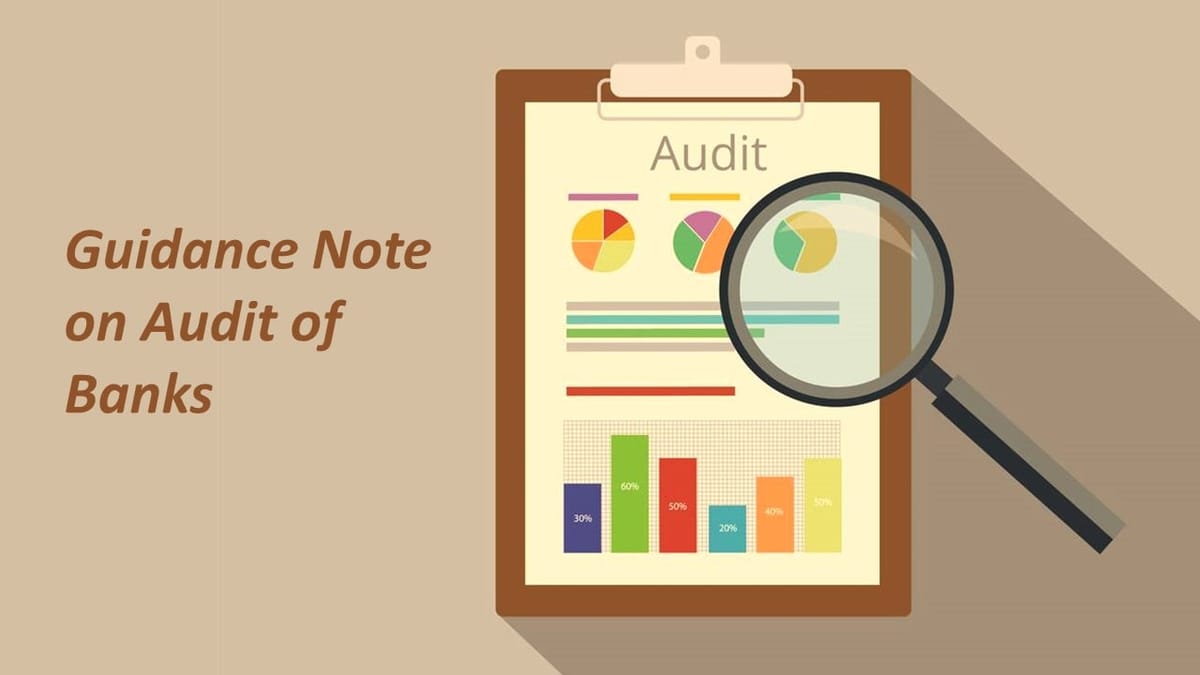Reetu | Mar 17, 2023 |

ICAI released Guidance Note on Bank Branch Audit
The Institute of Chartered Accountants of India(ICAI) has released Guidance Note on Audit of Banks (2023 Edition).
The Banking sector is the backbone of the Indian economy. Therefore, it is essential that the banking sector remains healthy, safe and sound. For healthy, safe and sound banking sector, one of the most important factors is the quality of various audits functions of banks specially the Statutory audit. The role of statutory auditors of banks is quite important in building a resilient banking sector.
The Guidance Note on Audit of Banks is issued by the Auditing and Assurance Standards Board of the Institute of Chartered Accountants of India (ICAI) under the authority of the Council of ICAI every year with the objective to provide detailed guidance to the members on statutory audit of banks. I am happy that the Auditing and Assurance Standards Board of ICAI has come out with this revised and fully updated 2022 edition of the “Guidance Note on Audit of Banks” for the benefit of the members and stakeholders at large
Personal Banking Department
Introduction
The area of operation / function of the Personal Banking Department is typically confined to resource mobilization, i.e., source of funds (for the bank) in the form of CASA deposits, term deposits and customer service and operations. This Department is responsible for monitoring the deposit portion which is the major contributor for the bank as resource of funds.
In today’s new age banking, there are various innovative products which are launched by every bank which has its own unique characteristics and customisation based on the need for funds and customer portfolio of the bank. For example, the bank may have deposit products as well as products / services linked with categorisation of customers based on predefined criteria offering privileged banking services to certain section of customers. In the era of interest rate liberalisation, every bank is expected to be proactive in terms of decision making in respect of rate of interest. Further, the banks do have specified polices w.r.t. bulk deposits and a bank may offer need-based special rates on such deposits.
Personal banking is responsible for handling the needs of retail customers. Each Bank will have its own threshold for defining who is a retail customer based on the products and services offering criteria. Banks may have assigned relationship manager for each customer based on his/her deposit placement (or any other parameters) with the bank, who is a single point of contact for all their needs of banking services, be it loans, cards, deposits, insurance and other investments. This is also referred to as Wealth Management Division in some banks. This is covered in Chapter 3 on “Financial Services provided by Banks” of Section A of the Guidance Note on Audit of Banks (2023 Edition).
The Operations Department of a bank oversees various functions. At a broad level the Banking Regulation Act defines, what functions a bank can conduct. Within this overarching framework, banks conduct a variety of operations which can be centralized or decentralized which would vary from bank to bank.
Due to increased competition, customer service plays a key role and the operations Department has to ensure that the team does things right. Any error in operations pose a risk to the bank as a result of the loss caused to the customer or the reputational risk involved.
Banks may have adopted Citizen’s Charter/ Charter for Customer Service, which would have elaborate details of the bank’s committal approach towards customer service.
Preparation / Planning
The Statutory Central Auditor (SCA) should obtain an understanding of various types of deposit products of the bank and the process of determination of interest rate and other charges on these deposits as per rules and regulations framed by the bank. The bank may have various methodologies adopted for interest payment; the deposits can be non-cumulative or cumulative and in certain cases the bank may launch schemes wherein there is a bullet payment of interest at the end of the tenure of deposits without compounding of interest.
The auditor should also obtain an understanding of the organizational structure more specifically the functions of relationship managers.
Conduct / Execution
The auditor is required to carry out the following:
To Read More Download PDF Given Below:
In case of any Doubt regarding Membership you can mail us at [email protected]
Join Studycafe's WhatsApp Group or Telegram Channel for Latest Updates on Government Job, Sarkari Naukri, Private Jobs, Income Tax, GST, Companies Act, Judgements and CA, CS, ICWA, and MUCH MORE!"